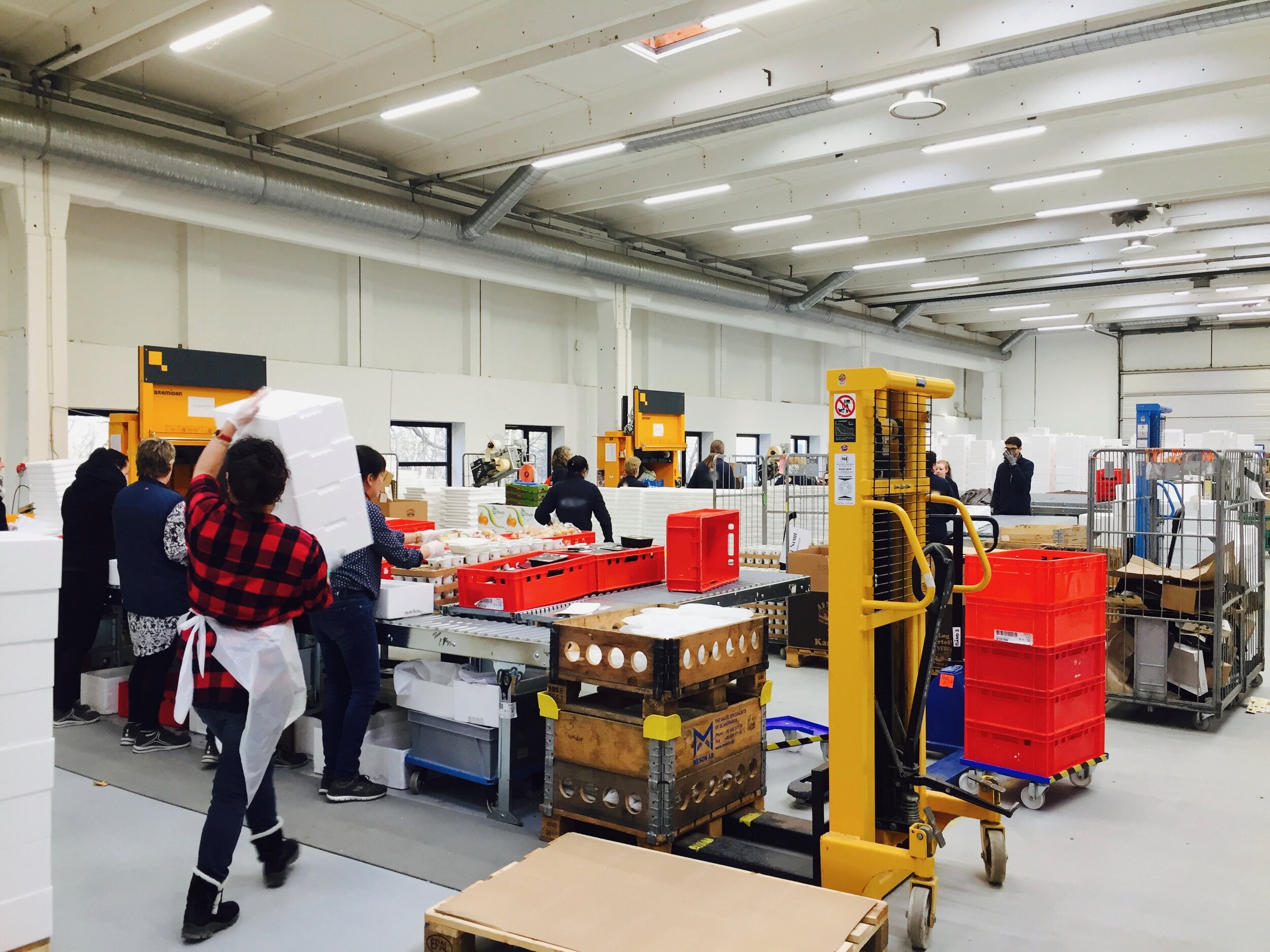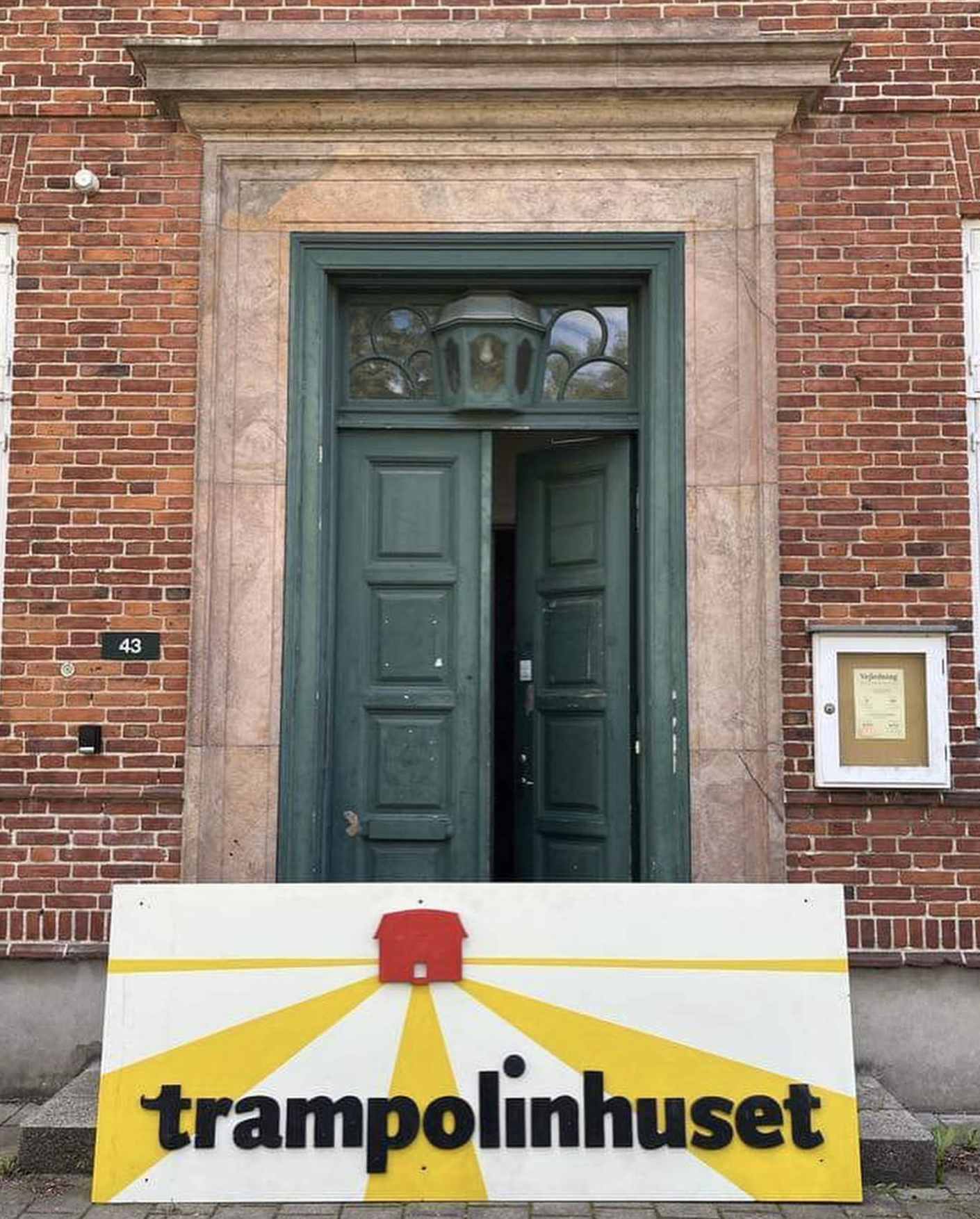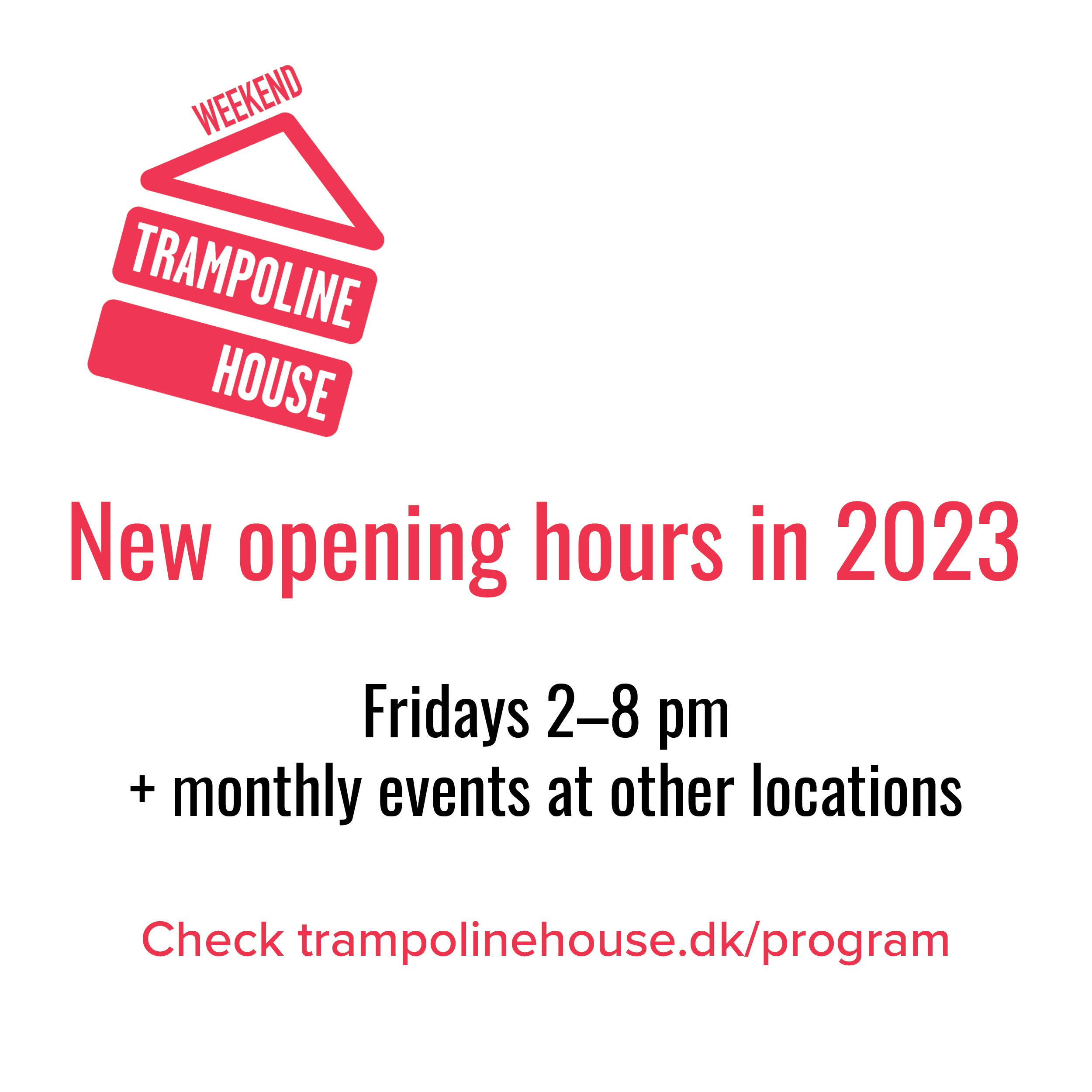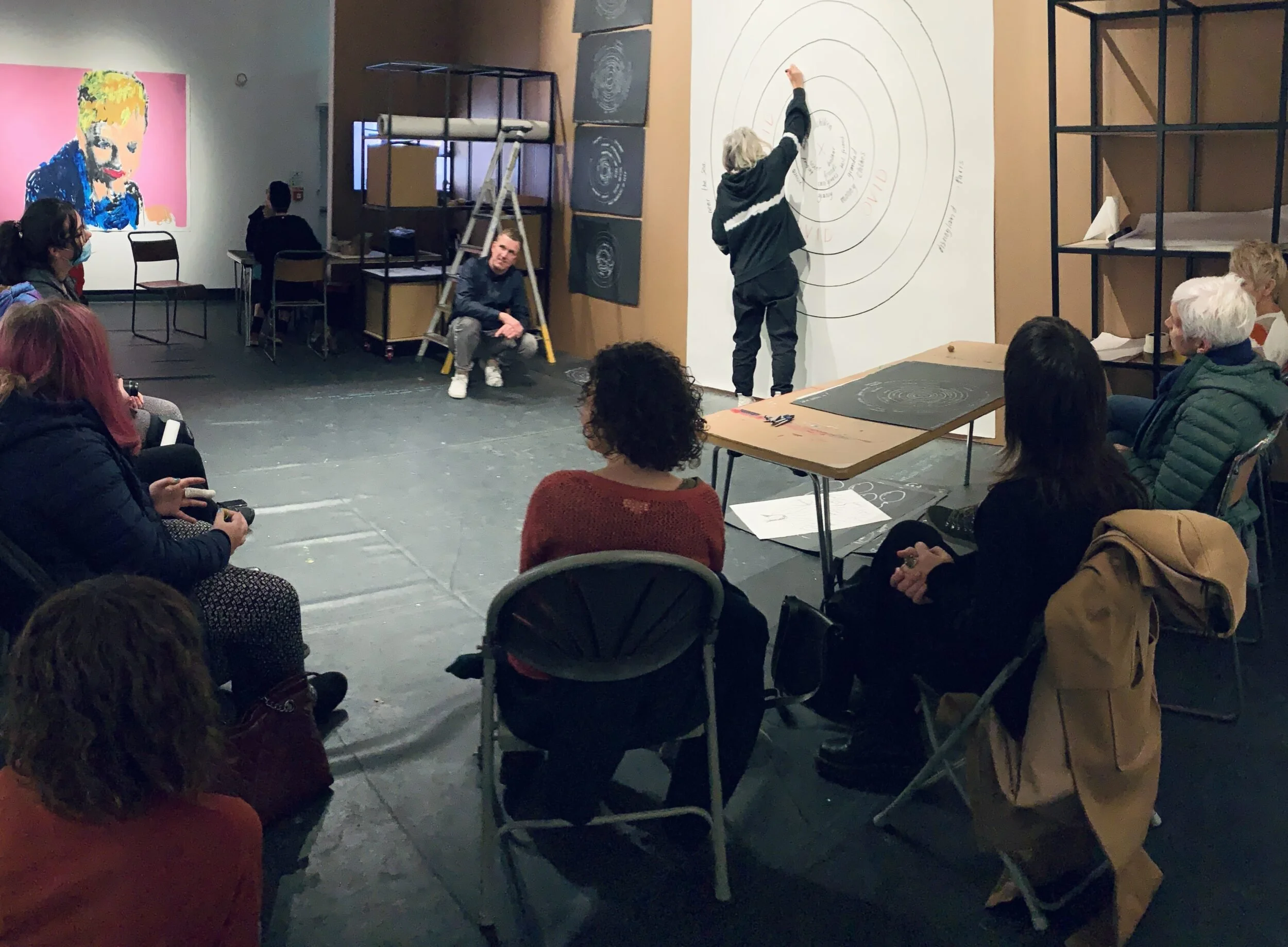New research: Refugees overperform on the job market
The ‘paradigm shift’ has consequences for refugees in the Danish job market. New research shows that they make up an indispensable workforce. The paradigm shifts coupling of employment and residency pressure refugees into overperforming on the job market.
By Christiane Jessen

Photo: Anna Lyngdal Wulff and Emma Froma Feil
When Almina goes to work, it’s with a feeling of having to perform disproportionately to her Danish colleagues. That’s why she comes to work even when having a migraine. Her boss tells her to go home, but Amina is too proud to take notice. Many refugees tell of a fear of being sent back to their countries of origin or lose their residency in Denmark presses them to overperform at work.
These are the results of the research project “The good refugee’ – an ethnographic investigation of employees with refugee backgrounds in Danish work places”, written by Anna Lyngdal Wulff and Emma Froma Feil, from the University of Copenhagen 2019.
The job market after the paradigm shift
8,700 employees are set to lose their jobs as a consequence of the paradigm shift, shows the Immigration and Integration Ministry’s own statistics. The thesis points, however, to the fact that refugees are an indispensable part of the Danish job market. Refugees often accept jobs which other workers don’t want. As such, because of the paradigm shift, businesses may find themselves without the necessary workforce.
The paradigm shift is intentioned to shift focus from integration to temporary stay and repatriation of refugees to their countries of origin. At the same time, the relationship between a refugee’s residency and work has become more closely intertwined. Without a job, one has a smaller chance of staying in the country.
Said and unsaid expectations at work
Refugees put in a greater effort at work, in order to meet the expectations of their workplace. They compensate, amongst other things, for their linguistic challenges by working harder and longer hours and in order not to stand out, refugees learn to adapt to social codes in the work place.
A human consequence of the paradigm shift is that refugees avoid showing any signs of weakness to their employers or colleagues, out of fear of attracting negative attention, and losing their job in the next round of job cuts.
The employment efforts of Trampoline House.
Refugees should meet the expectations of their employers, but this can’t be learned at school or in an IGU course. It’s something that has to be learned in practice. Thus, concludes the thesis.
In Trampoline House we work to develop such a practice. Refugees are trained in accordance with the expectations of the job market through visits to businesses and preparatory internships.
A relation to the job market is a crucial part of the integration process and self-sufficiency is a priority for many. As such it is also a central part of the work of Trampoline House with refugees.
Through visits to businesses, users of Trampoline House get an insight into the expectations and opportunities of the job market. To experience workplaces at first hand provides an understanding not provided at school.
Support refugees’ way into the job market
In Trampoline House, we’ve developed a method that makes it easier for refugees to find a foothold in the job market. Several municipalities have already started employing our method, but in order to get a broader reach, we also need the financial support from individuals. If you, your partner or your mother would also be able to support our work with a recurring donation, it would make a great difference to our work.
Read more
We demand justice for stateless refugees in Denmark. March with us in solidarity on June 10 at 1 pm. We gather at Christiansborg Castle Square, from where we march around the inner city, and finish back at Christiansborg for speeches, poetry, and music.
On Saturday, June 17, from 4 pm–01 am, we are throwing a support party for Trampoline House at BumZen on Nørrebro, Copenhagen. Join us with your family and friends for a blast of a party with community kitchen, bar, raffle, DJs and music – and help support Copenhagen's only community center for displaced people❣️
Trampoline House invites the public to a big community meeting about the massive mal-thriving of rejected asylum-seeking children in the Danish deportation system on Thursday, June 1, from 3–5:00 pm at Union, Nørrebro. Come and join us to discuss what we can do!
Trampoline House is hosting a big party on Saturday, April 15 from 6pm–2am in Impact Roasters’ amazing space at Flintholm Train Station 💃🏻🕺🏿🎶 Please come – it’s also your party!
We have just updated our Friday program and event calendar for the Spring 🌱 We have a series of interesting events coming up! Check it out…
Together with five European partners, Weekend Trampoline House has organized a questionnaire survey on young Europeans' attitudes towards refugees and immigrants. The result is discouraging reading to us, but it's good to know the scale of the problem before taking action!
When Weekend Trampoline House opens again after the Christmas holidays on January 6, we will have new opening hours and a new staff member!
Weekend Trampoline House will be closed for the Christmas Holidays from December 19 to January 5. We will open again on Friday, January 6 at 2 pm. Thank you so much for a fantastic 2022 ❤️ Merry Christmas, happy hew year, and see you again in 2023!
🎄 Join us in Weekend Trampoline House for a festive Christmas celebration with Christmas bingo, Christmas film screening, and Christmas community dinner ☃️♥️
On Sunday, December 18, we will continue our free lecture series on the Danish asylum system when Sine Hav from the Danish Refugee Council visits Weekend Trampoline House. She will tell us more about the requirements for applying for a permanent residence permit in Denmark. After the lecture, you are most welcome to join our festive Christmas celebration.
Are you thinking of volunteering in Weekend Trampoline House, or are you already volunteering but have not yet attended an info meeting? Then join this info meeting for new volunteers on Sunday, November 27, from 4–5 pm.
Christmas is coming 🎄⛄️❄️ We celebrate this in Weekend Trampoline House's Children's Club with lots of cozy Christmas activities for children and their parents. Because it's no fun celebrating Christmas in an asylum center or celebrating Christmas in a foreign country you've just fled to. Click to see our festive program 🥨🎁💝´
Please join us in Weekend Trampoline House on Friday, November 11 from 4–7 pm for the launch of the new issue of visAvis, a magazine produced by activists of all backgrounds and passports since 2009. The launch includes readings, film screenings, and food.
The Iranian people from deportation center Avnstrup invite you to their demonstration on Saturday, November 5 at Christiansborg Slotsplads, Copenhagen from 2–4 pm. Iran is not safe – therefore, the Iranians who are living in Danish deportation centres demand to get their asylum cases reopened and not be subjected to the deporation center system!
📣 Are you in Kassel in the coming weeks to see the groundbreaking documenta fifteen exhibition before it closes on September 25, then Trampoline House would be very happy to see you to one of our events about the global north’s dysfunctional asylum policies and how to imagine asylum differently. All events are free and conducted in English. Click to read more 👉👉🏽👉🏿
Weekend Trampoline House now offers free legal counseling to asylum seekers, rejected asylum seekers, and refugees with residence permit in Denmark every second Friday (uneven weeks) from 2–6 pm and every second Sunday (even weeks) from 2–6 pm by Weekend Trampoline House’s legal counselor Michelle Keun-Rasmussen. Click for more info…
Are you thinking of volunteering in Weekend Trampoline House, or are you already volunteering but have not yet attended an info meeting? Then join this info meeting for new volunteers on Sunday, August 28, from 4–5 pm.
Join us for one of this year’s coolest summer parties and support Trampoline House's work for refugees and asylum seekers in Denmark at the same time. The party takes place on August 20 from 6 pm–2 am at Kapelvej 44, 2200 Copenhagen N. Click to read more…
This summer, Trampoline House will be exhibiting art projects, doing performances, and hosting workshops in Germany as part of the major contemporary art exhibition Lumbung – documenta fifteen. Trampoline House is one of 14 lumbung members in documenta fifteen, which will take place over 100 days from June 18–September 25, 2022 in Kassel, Germany.
On Sunday, we will continue our lecture series on the Danish asylum system when Anne Lund Preisler Herbst from the Danish Refugee Council visits the Weekend Trampoline House. She will tell us more about the so-called paradigm shift in Danish immigration policy, which was adopted by the Folketing in February 2019.
We are so proud to announce that Project Art Works, a collective of neurodiverse artists and activists from the UK, will visit Trampoline House from May 20–22 to conduct a workshop with people from the house. Titled "Massaging the Asylum System", the workshop runs over two days and is for people in the Danish asylum system and in the Danish integration program.
📣 Trampoline House is co-organizer of a big demonstration on Sunday, April 17, in Copenhagen, which protests against Denmark's forced deportation practices that divide families and allow the use of force.
On May 1, you can learn more about the poor health conditions of refugees at Europe's borders. It happens when the film festival Global Health Film Days in collaboration with Doctors without Borders Denmark and Weekend Trampoline House invite the public to a film and debate event in the Apostle Church in Copenhagen about the living conditions of refugees and asylum seekers in the notorious Moria refugee camp on the Greek island Lesvos.
Super exciting puppet workshop with Joachim Hamou this Friday in Weekend Trampoline House. The workshop is part of Trampoline House’s contribution to the documenta fifteen exhibition, which takes place in Germany this summer❣️
This Sunday, Dr. Poornima Luthra will conduct a workshop in Weekend Trampoline House on diversity, equality, and inclusion. What we can all do to become an active ally of inclusion. Everyone is welcome!
On Friday, March 11, Michala Clante Bendixen from Refugees Welcome Denmark will pass by Weekend Trampoline House's house meeting to tell us more about the special law for Ukrainian refugees, which is expected to be passed in the Danish Folketing within a few days. Everyone is welcome!
On Sunday, February 27, Mads Melin from the Danish Refugee Council will give a lecture in the Weekend Trampoline House on the asylum procedure in Denmark. Everyone is welcome!
On January 28, 2022, the refugee justice community center Trampoline House re-opens in a smaller version under the name "Weekend Trampoline House" in the Apostle Church's parish house in Vesterbro in Copenhagen. Warm welcome to a festive opening reception from 5–9 pm. There will be live music, light food and beverages, and you can learn more about the new house and how to become a part of it. Click to read more…































